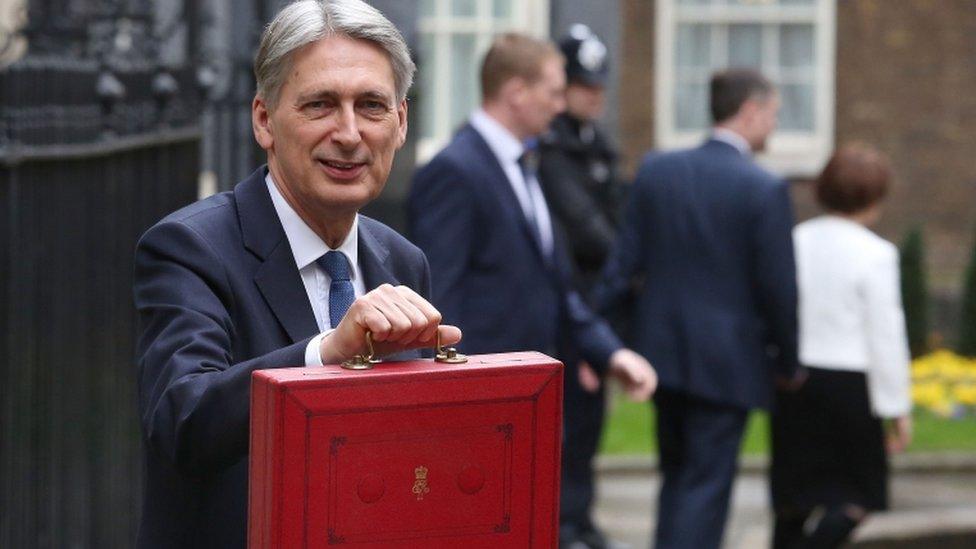Chancellor turns comic - but not everyone is laughing
- Published
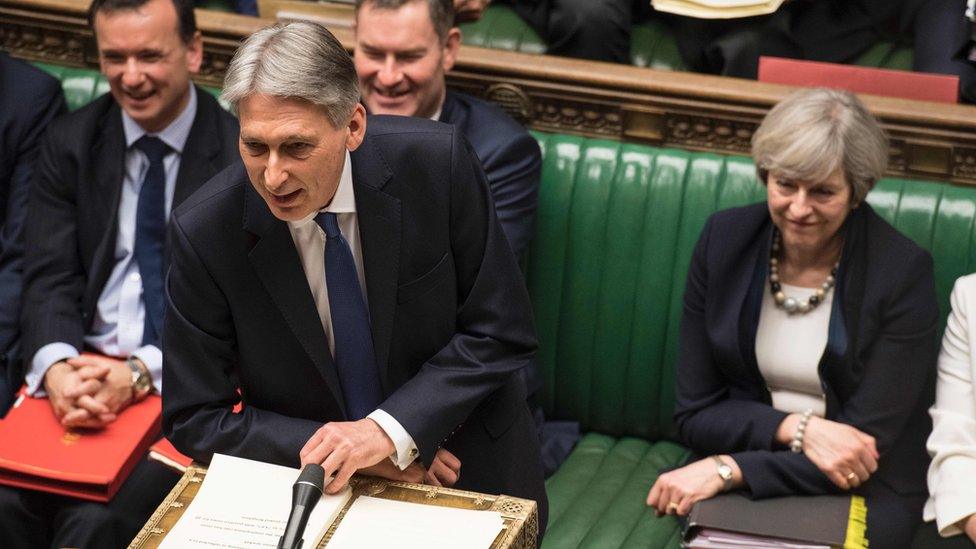
Philip Hammond put in an unexpected comic turn during his statement
Jack Dee can rest easy. The late Les Dawson need not feel that his reputation for dry, droll dialogue has been trumped. But it has to be said: the chancellor was unexpectedly comical in delivering his first Budget.
He even teased the prime minister, noting that she had pinched a couple of his lines for advance announcement.
Theresa May bowed her head in mock-contrition before rallying to remind her Downing Street neighbour that it was International Women's Day.
But the chancellor's best gags were reserved for the Labour Party. He said, for example, that their leader, Jeremy Corbyn, was "so far down a black hole that even Stephen Hawking has disowned him".
The scientist reckons Mr C is a "disaster". Mr Corbyn looked baleful.
OK, maybe you had to be there - but, by contrast with expectations, there was drollery on display from Philip Hammond.
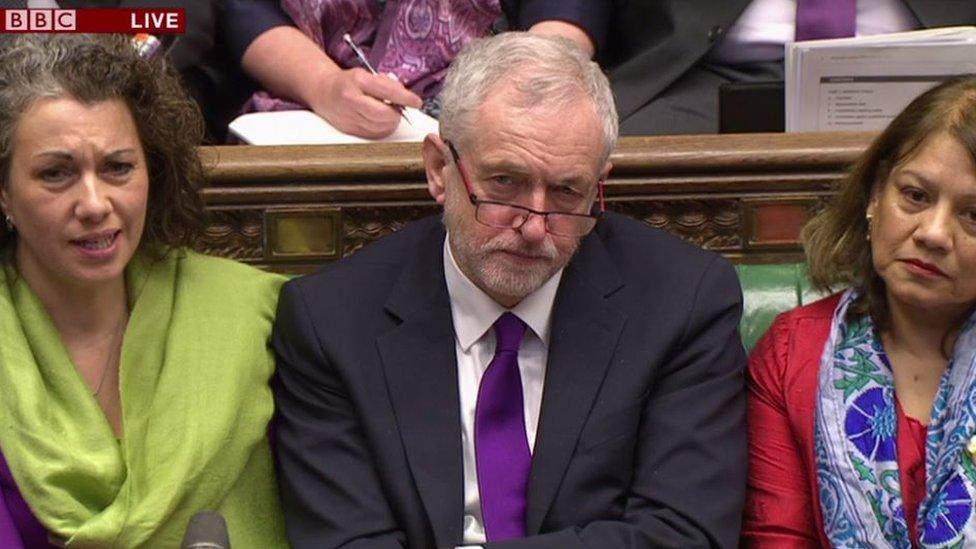
Jeremy Corbyn did not appear amused by Mr Hammond's jokes at his expense
However, even top gagsters have off moments, gigs where they cannot stir the audience. I doubt, for example, whether the self-employed are chortling all that heartily at the increase in their National Insurance Contributions (NIC), particularly when the Conservative manifesto promised that they would be left alone.
(The Treasury notes that it has not breached a law preventing increases in NIC - but then that is because said statute only applied to employees).
Mr Hammond argued that the change in NIC for the self-employed was required on grounds of equity - levying comparable cash from employees and the self-employed in return for now comparable benefits. He argued further that it raised valuable revenue and thus helped pre-empt the need for additional borrowing.
And, on another issue, the SNP benches proved stubbornly immune to Phil the Funster. He announced that there would be £350m extra for the Scottish government to spend.
There then followed a showbiz moment: the Tories cheered and the chancellor grinned broadly while repeatedly gesturing towards the SNP benches, inviting them to join in the general hilarity.
The Nationalists, entirely understandably, declined to participate, sitting silent upon a peak in Darien or, rather, upon their benches in the Commons.
Chancellor Philip Hammond announces £350m in additional funding for Scotland in his Spring budget
Both at Westminster and Holyrood, the SNP subsequently noted that the cash available, while welcome, was spread over three years and failed to compensate wholly for what they said were more substantial reductions over the past ten years.
There was precious little jollity, either, surrounding the issue of oil. The chancellor announced a review of North Sea taxation in an effort to bolster this late phase in the history of the black, black oil.
Scottish ministers say action is needed - rather than a further review. But, of course, there is an intrinsic double edge to the chancellor's initiative.
On the one hand, he is offering potential support to the North Sea. On the other, he is drawing attention yet again to the relatively low tax take from the sector at the moment.
Mr Hammond did not labour this point. But Labour in Scotland certainly did. As did the Scottish Tories who said the current revenues meant that the oil forecasts advanced by the Scottish government at the time of the independence referendum were a "tissue of lies".
Scottish ministers insist that Scotland's economic potential, including a limited but valuable contribution from the North Sea, remains substantial.
And they seize upon another issue which was also germane at the time of the 2014 independence referendum. That of the European Union. They accuse the chancellor of neglecting the likely economic challenge of Brexit.
Who's laughing now?
- Published8 March 2017
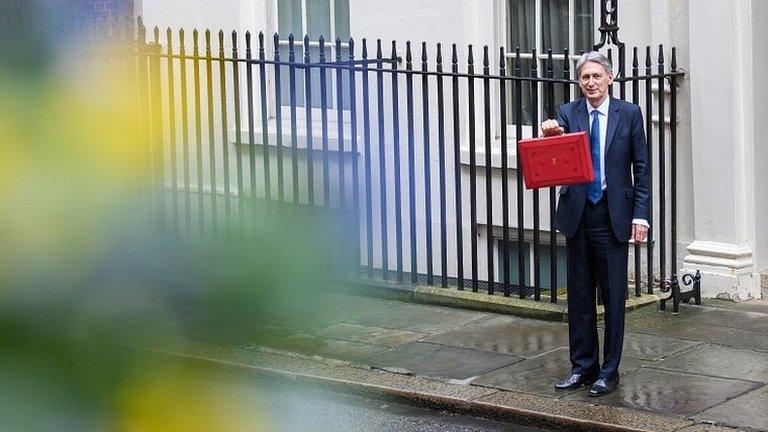
- Published8 March 2017
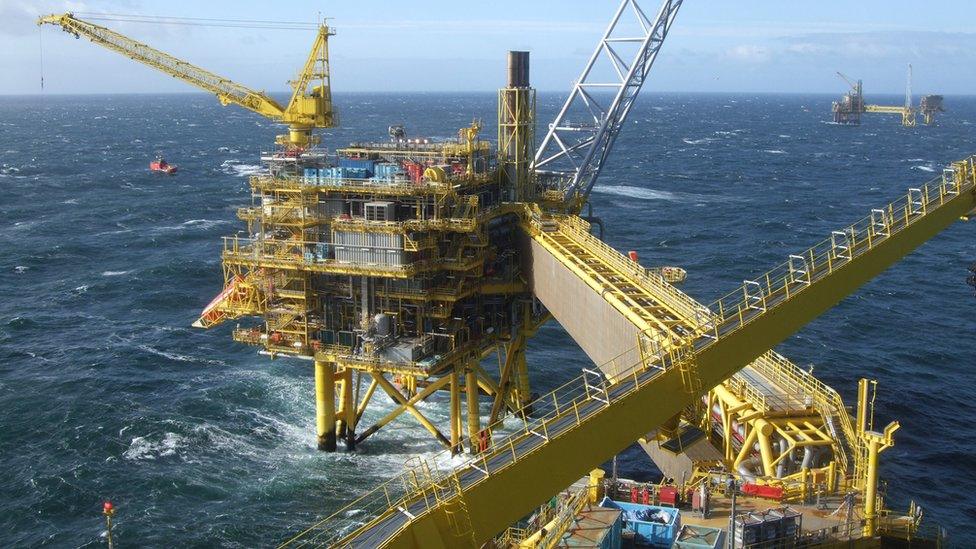
- Published8 March 2017
